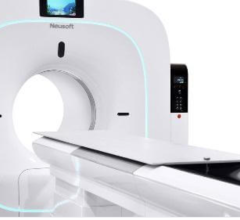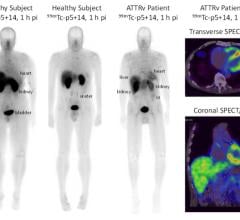April 2, 2015 — The World Molecular Imaging Society (WMIS) announced the kick-off of a collaboration with the National Cancer Institute (NCI), part of the National Institutes of Health (NIH), to promote best practices for co-clinical trials. The end goal of the collaboration is to speed the discovery of more and better treatments for cancer and other diseases.
WMIS also lauded President Obama's recent announcement of the Precision Medicine Initiative designed "to bring us closer to curing diseases like cancer and diabetes?—?and to give all of us access to the personalized information we need to keep ourselves and our families healthier," stated Jason Lewis, M.D, professor and vice chair for research, Emily Tow Jackson Chair at Memorial Sloan Kettering Cancer Center, and president of the WMIS.
Over the past two years, WMIS and the American Association of Physicists in Medicine (AAPM) have shared their interest with NCI to promote best practices for co-clinical trials. The two groups met at the World Molecular Imaging Congress in September 2014 to finalize an agreement that WMIS, with the assistance of the AAPM, would explore how to promote best practice for quantitative imaging for co-clinical trials.
Co-clinical trials are defined as parallel or sequential trials of combination therapy in patients and in mouse and human-in-mouse models of appropriate genotypes to represent the patients. The initiative is designed to help establish best practices for quantitative imaging methods and imaging protocols that are applied to both mouse and human-in-mouse models. The research resources are expected to improve the correlation of results from mouse models with prospective and/or retrospective clinical trial data. The clinical goals are to support effective mouse/human co-clinic therapy and prevention trials.
"Molecular imaging and the emerging field of theranostics are essential to the successful implementation of precision medicine. The World Molecular Imaging Society, with its international forum for discussing all aspects of molecular imaging and related fields, is in an unique position to take the lead in global discussion, innovation and scientific collaboration, from preclinical studies to first-in-human imaging trials," said Hedvig Hricak, M.D., Ph.D., chairman, Department of Radiology, Memorial Sloan-Kettering Cancer and member of WMIS.
As part of the agreement, WMIS will include two spotlight sessions on precision medicine and co-clinical trials during the upcoming 8th Annual World Molecular Imaging Congress. The theme of the meeting is Precision Medicine, Visualized, which embodies current and future roles of molecular imaging in basic science, translational medicine and healthcare. The WMIC meeting will take place Sept. 2-5, 2015 in Honolulu, Hawaii.
Precision medicine is an emerging approach for disease treatment and prevention that takes into account individual variability in genes, environment and lifestyle for each person. While significant advances in precision medicine have been made for select cancers, the practice is not currently in use for most diseases. Many efforts are underway to help make precision medicine the norm rather than the exception. To accelerate the pace, President Obama unveiled the Precision Medicine Initiative — a new enterprise to revolutionize medicine and generate the scientific evidence needed to move the concept of precision medicine into every day clinical practice. To be most effective and comprehensive, the Precision Medicine Initiative will engage partners across all communities—scientific, medical, health, and societal—including patients and patient advocacy organizations, academic medical centers, clinicians, scientists from multiple disciplines, pharmaceutical companies and medical product developers, scientific societies and research coalitions, privacy experts and medical ethicists.
For more information: www.wmis.org


 July 30, 2024
July 30, 2024 








